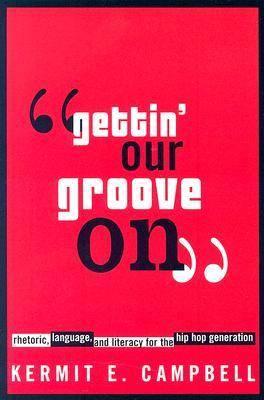Overview
Because of the increasing influence of Hip hop music and culture on a generation raised during its dominance, it is important to address Hip hop and African American vernacular not merely as elements of folk and popular cultures but as rhetoric worthy of serious scrutiny. In Gettin' Our Groove On, author Kermit E. Campbell not only insists on this worthiness but also investigates the role that African American vernacular plays in giving a voice to the lived experiences of America's ghetto marginalized. Campbell's work shows the persistence and force of the vernacular tradition in the face of increasing criticism from the American mainstream. A broad area of research is covered with surprising depth as Campbell addresses issues of language and rhetoric within the historical context of African oral tradition and African American folklore, poetry, popular music, fiction, and film. The text presents gangsta/reality rap as a rhetorical tactic consistent with ghetto hustling culture, rather than just entertainment, and also explores the negation of black vernacular in the classroom that has resulted in misguided approaches to teaching literacy to black students. Itself infused with the Hip hop idiom and an engaging style free of academic jargon, Gettin' Our Groove On presents a thorough and provocative contribution to cultural and rhetorical studies.
Full Product Details
Author: Kermit E. Campbell
Publisher: Wayne State University Press
Imprint: Wayne State University Press
Dimensions:
Width: 15.40cm
, Height: 1.10cm
, Length: 22.90cm
Weight: 0.298kg
ISBN: 9780814329252
ISBN 10: 081432925
Pages: 240
Publication Date: 30 September 2005
Audience:
College/higher education
,
Professional and scholarly
,
Undergraduate
,
Postgraduate, Research & Scholarly
Format: Paperback
Publisher's Status: Active
Availability: Manufactured on demand

We will order this item for you from a manufactured on demand supplier.
Language: English
Reviews
What Campbell does with the idea of vernacular discourses as related to Hip hop is highly original. He not only makes the case-quite rigorously-that African American vernacular discourses, particularly Hip hop, are worthy objects for scholarly scrutiny, but his own vernacular-inflected prose is powerful 'testifyin' for the efficacy of his perspective. The topic is timely, definitely important in terms of practical applications, and Campbell, because of his unique and thorough grounding in both the African American vernacular and the Western rhetorical traditions, can address it in sparkling fashion. --Keith Gilyard Pennsylvania State University, author of Liberation Memories: The Rhetoric and Poetics of John Oliver Killens Kermit Campbell addresses hip-hop and African American vernacular not merely as elements of folk and popular cultures but as rhetoric worthy of serious scrutiny.Campbell's work shows the persistence and force of the vernacular tradition in the face of increasing criticism from the American mainstream.itself infused with the hip-hop idiom and a style free of academic jargon, the book presents a provocative contribution to cultural and rhetorical studies. --Colgate Scene
Kermit Campbell addresses hip-hop and African American vernacular not merely as elements of folk and popular cultures but as rhetoric worthy of serious scrutiny.Campbell's work shows the persistence and force of the vernacular tradition in the face of increasing criticism from the American mainstream.itself infused with the hip-hop idiom and a style free of academic jargon, the book presents a provocative contribution to cultural and rhetorical studies. --Colgate Scene What Campbell does with the idea of vernacular discourses as related to Hip hop is highly original. He not only makes the case-quite rigorously-that African American vernacular discourses, particularly Hip hop, are worthy objects for scholarly scrutiny, but his own vernacular-inflected prose is powerful 'testifyin' for the efficacy of his perspective. The topic is timely, definitely important in terms of practical applications, and Campbell, because of his unique and thorough grounding in both the African American vernacular and the Western rhetorical traditions, can address it in sparkling fashion. --Keith Gilyard Pennsylvania State University, author of Liberation Memories: The Rhetoric and Poetics of John Oliver Killens
Author Information
Kermit E. Campbell is assistant professor of rhetoric and writing at Colgate University.




